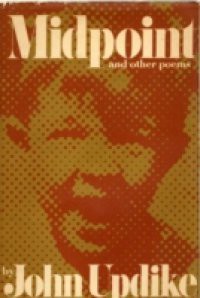In the boldly eclectic title poem of his collection, John Updike employs the meters of Dante, Spenser, Pope, Whitman, and Pound, as well as the pictographic tactics of concrete poetry, to take an inventory of his life at the end of his thirty-fifth yearat midpoint. These cantos form both a joke on the antique genre of the long poem and an attempt to write one: an earnest meditation on the mysteries of the ego, lost time, and the mundane. The remainder of the volume is a six years' harvest of light verse and incidental lyricspoems dealing with love and death, animals and angels, places and persons, dream artifacts and the naked ape. As a writer of humorous verse Mr. Updike is alone in his generation; to serious poetry he brings the vision and warmth characteristic of his prose.

